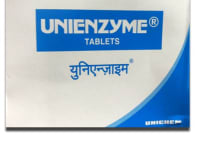
No interaction found

WEIGH RISKS VS BENEFITS
Gentamycin Eye Drop is unsafe to use during pregnancy.There is positive evidence of human fetal risk, but the benefits from use in pregnant women may be acceptable despite the risk, for example in life-threatening situations. Please consult your doctor.

SAFE
Gentamycin Eye Drop is safe to use during lactation. Human studies have shown that either the drug does not pass into the breastmilk in significant amount or is not expected to cause toxicity to the baby.

Gentamycin Eye Drop may cause side effects which could affect your ability to drive.

CAUTION
Gentamycin Eye Drop should be used with caution in patients with kidney disease. Dose adjustment of Gentamycin Eye Drop may be needed. Please consult your doctor.

There is limited information available on the use of Gentamycin Eye Drop in patients with liver disease. Please consult your doctor.
Uses of Gentamycin Eye Drop
Gentamycin Eye Drop is used in the treatment of bacterial infections.
How to use Gentamycin Eye Drop
This medicine is for external use only.Take it in the dose and duration as advised by your doctor. Check the label for directions before use. Hold the dropper close to the eye/ear without touching it. Gently squeeze the dropper and place the medicine inside the lower eyelid or ear. Wipe off extra liquid.
How Gentamycin Eye Drop works
Gentamycin Eye Drop is an antibiotic. It kills bacteria by inhibiting synthesis of essential proteins, required by bacteria to carry out vital functions.
Common Nausea, Vomiting, Skin rash, Diarrhoea, Hearing loss, Balance disorder (loss of balance).
Expert advice for Gentamycin Eye Drop
It is given as a drip (intravenous infusion), as an injection directly into a vein or into a muscle; or as an ear or eye drops. Do not drive immediately after using gentamicin eyedrops because gentamicin in the eye may cause temporary  blurring of vision. Gentamicin should be used with caution in premature babies because of their kidney immaturity, and in elderly people. Gentamicin may cause damage to the kidneys and/or nerves. Consult your doctor for monitoring  Kidney function and drug levels in the blood  during treatment. Consult your doctor, if you experience hearing loss, dizziness, numbness, skin tingling, muscle twitching, or seizures which may be signs of nerve damage. Do not start or continue the gentamicin and consult your doctor:
If you have inflammation of the middle ear (otitis media), kidney or liver problem, open wound or damaged skin.
If you are pregnant or planning to become pregnant or breastfeeding.
If you experience itching, skin rashes, swelling of face, lips, throat or difficulty in breathing.
Q. Is Gentamycin a macrolide, steroid or a sulfa drug?
Gentamycin does not contain sulfa and is not a macrolide, or steroidal drug. It is a broad spectrum aminoglycoside
Q. Is Gentamycin nephrotoxic?
Yes, Gentamycin is a nephrotoxic drug. Please consult your doctor before taking the drug
Q. Is Gentamycin safe for babies?
Gentamycin is safe for babies if used at prescribed doses for the prescribed duration as advised by your doctor
Q. Does Gentamycin cause hearing loss or burn?
Yes Gentamycin can cause hearing loss if used inappropriately. It can cause burning of eyes
Q. Is Gentamycin used for pink eye?
Yes, Gentamycin is used in the treatment of pink eye (conjunctivitis). Please consult your doctor before use
Q. Does Gentamycin dialyze out?
Yes, Gentamycin is a dialyzable drug
Q. What organisms does Gentamycin cover?
Gentamycin is mainly effective against pseudomonas, escherichia, enterobacter, klebsiella, staphylococcus, salmonella, serratia, and shigella species but rarely effective against streptococci and methicillin-resistant Staphylococcus aureus (mrsa)
Q. Does it cover anaerobes?
It does not act against anaerobes.


 Gentamycin Eye Drop
Gentamycin Eye Drop  Bookmark
Bookmark





















